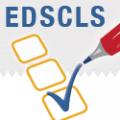State administrators who focus on administering grant programs aimed at improving the learning environment as a whole or in its parts (environment, safety, or engagement) can provide specific guidance on measuring school climate and implementing evidence-based programmatic interventions. With their guidance, districts and schools can become empowered to make learning environment improvements. Understanding the needs and education priorities of the state while working with the federal government allows state administrators to determine the areas of improvement and how to guide districts through policies and incentives. For example, research on student engagement, academic success, dropout and graduation rates has shown the need to replace punitive discipline practices. State administrators can advocate for programs and interventions that require schools to address this need. They also can collaborate with administrators including from other states and partners to consider how to integrate the elements of a safe and supportive learning environment across all grants and programs. Data on school climate can inform the successful implementation of programs focused on academics, family engagement, and staff professional development.
By assessing the perceptions of school climate, educators and education agencies can identify key issues in need of reform. Once needs are identified, data from school climate assessments can be used to set state goals and priorities and choose programmatic interventions to support district goals. When measured over time, school climate data can be a powerful tool to track progress toward goals. Data also can be used to compare and contrast schools with one another. This can highlight the benefits and successful programming that can be applied at a state level to create systematic change and ensure equity among schools.
Once areas of need and improvement have been identified by school climate measurement systems, those data must be applied to make an informed decision about which programmatic interventions are most likely to improve student outcomes. State administrators can provide support for the following activities integral to the successful implementation of selected programmatic interventions:
- Conducting professional development and training activities
- Providing access to technical assistance and support
- Conducting regular monitoring of progress throughout the year
- Providing feedback about progress
- Assessing needs of implementers and responding as needed
State administrators can be critical in making data driven decisions while incentivizing districts to invest in building climate measures or implementing evidence-based interventions through the use of additional funding or other incentives. The planned and intentional application of evidence-based programs greatly increases the potential for positive student outcomes.


